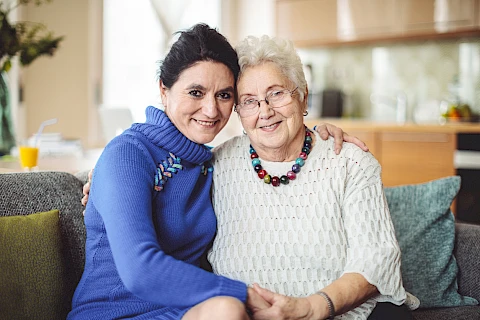
As our loved ones age, their need for care increases. If you have a senior family member getting to the point where they need help, understanding different caregiving options is necessary. Some tasks may require medical skills, while others just need a friendly presence. Learn about both medical care and companion care so you can assess what care you can provide and which to arrange.
Medical Care for Older Individuals
Medical care involves tasks that are more specialized and health-focused. It usually requires a higher level of skill and training. Examples of medical care tasks include:
- Medication management
- Wound care
- Physical therapy
- Monitoring vital signs
- Special dietary needs
Healthcare professionals like nurses or certified caregivers often perform medical caregiving. This involves understanding medical conditions, knowing how to use medical equipment, and being trained to handle emergencies.
Companion Care for Seniors
Companion care focuses on providing emotional and social support rather than medical assistance. It's about ensuring that seniors do not feel isolated and lonely. Examples of companion care tasks include:
- Social interaction, such as conversations and outings
- Meal preparation
- Light housekeeping
- Accompanying to doctor's appointments or social events
- Helping with hobbies and recreational activities
Companion care benefits both the emotional and psychological aspects of a senior's life. It helps improve mood, reduces the risk of depression, and keeps your loved one engaged.
Assessing Your Ability to Provide Care
Before deciding on the kind of care you will provide, you must evaluate your own situation.
Self-Assessment:
- Skills: Do you have the skills needed for medical tasks, or would you need training?
- Time: How much time can you realistically dedicate to caregiving without neglecting your other responsibilities?
- Emotional Capacity: Do you feel emotionally strong enough to handle the demands of caregiving?
Other Considerations:
- Work: Check if you have the flexibility to take time off or work from home.
- Family: Consider the impact on your family life and other dependents.
- Burnout: Be aware of the signs of caregiver burnout, such as exhaustion, irritability, and feeling overwhelmed. It's crucial to take care of your own health as well.
Deciding What Care to Arrange
Once you have assessed your ability to provide care, you might find that you need some help. Deciding between providing care and arranging it can be challenging. Consider whether you can offer the same level of care that a professional would. Think about whether arranging care would free up your time for other responsibilities. Determine how each option might affect your stress and mental health.
Benefits of Professional Caregiving Services
Professional caregiving services provide the expertise and experience that you may not have when it comes to handling medical tasks. Professional caregivers are trained to manage emergencies. They also offer specialized care plans tailored to individual needs.
Get Care From Senior Helpers South Valley
Understanding the different types of caregiving is necessary for making informed decisions. While medical care requires specialized skills and training, companion care focuses more on emotional and social support. Assess your ability to provide care effectively and consider the benefits of professional services. By making informed decisions, you ensure that your senior loved one receives the care they need while maintaining your own well-being.
If you need professional caregiving services, contact us at Senior Helpers South Valley to explore how we can support you and your loved one in Lake Balboa, Encino, Reseda, Sherman Oaks, and Van Nuys.